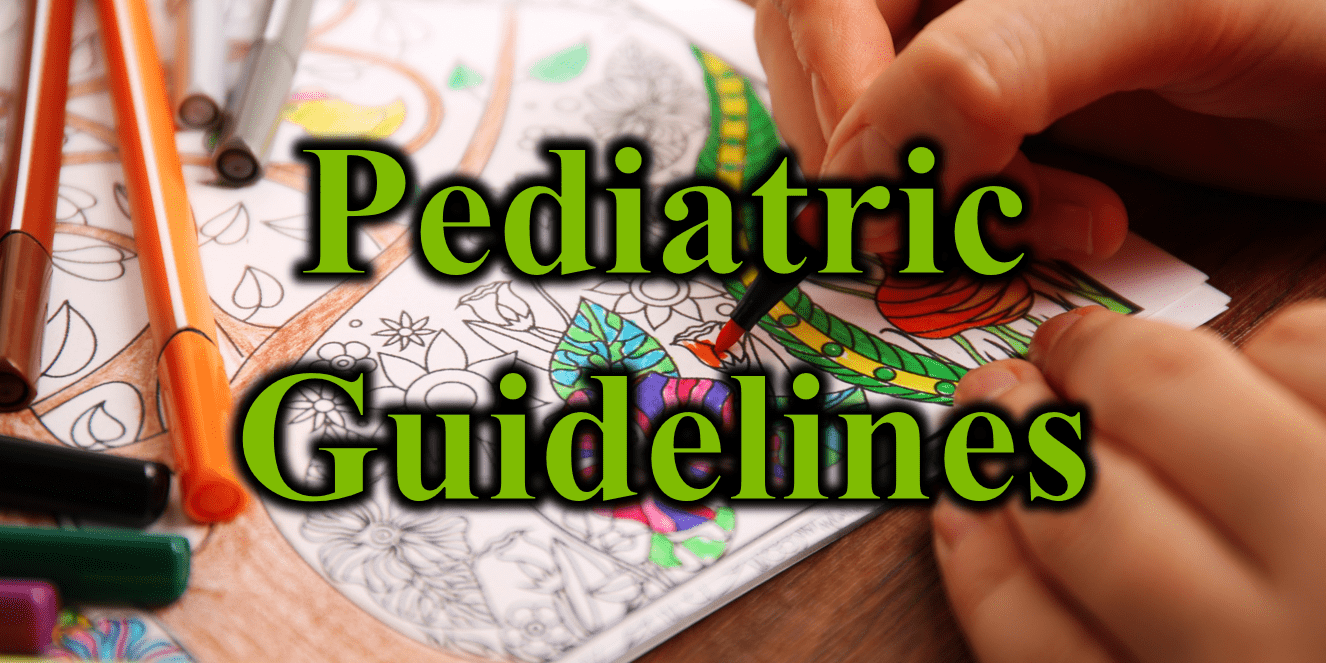With a mainstream medical world harping about the importance of following CDC and consensus guidelines for the treatment of COVID 19, let’s revisit some ancient history, i.e. 2013, to see how well pediatricians follow guidelines. Researchers from Cohen Children’s Medical Center of New York measured the compliance of pediatric specialists with the “American Academy of Pediatrics (AAP) clinical guidelines regarding pharmacotherapy in treating young patients with Attention Deficit Hyperactivity Disorder (ADHD)”. These specialists include neurologists, psychiatrists, and developmental pediatricians who regularly care for children with ADHD.
Given the high regard for guidelines by such a well-known organization as the American Academy of Pediatricians, one would expect the specialists to hold tightly in daily practice to these guidelines. One might suspect that the average pediatrician might be out of step in keeping up with the latest guidelines, but not the specialists. As the “real” experts, they would be following the guidelines that they and their expert colleagues had formulated in some AAP committee.
Interestingly, the survey showed that 90 percent of the expert specialists did not adhere to the guidelines. For example, 1 in 5 started with pharmaceuticals rather than with behavior management as the guidelines clearly recommend. From there, 1 in 3 specialists start with a different medication than the recommended methylphenidate. Clearly, there is some bias towards medications.
Before condemning the whole world of pediatric specialists caring for ADHD, let’s step back and consider the influences and factors involved in following or not following ADHD guidelines. First, most parents (as well as other people who take care of children (teachers, providers, etc.)) recognize a worsening trend of behavioral problems in our next generation. ADHD, autism, depression, anxiety, and more plague our children more than they did when we were growing up. This increase creates an immense pressure to fix the problem, to do something. Under this pressure, medication’s promise of a quick fix is really tempting.
Second, while guidelines plan for the average or typical patient, in our offices we deal with a particular patient with specific nuances and individualized needs. Applying a one-size-fits-all approach to the child sitting across from us is simply unwise. The perception that guidelines are universal goals is misleading. Instead, guidelines should be starting points on which to build a therapy. Most children need a therapy that’s at least slightly different from the guidelines.
Third, guidelines are guideposts rather than endpoints. Medicine is learning and growing. Guidelines should be movable fence posts rather than parking spots. The providers in the field must constantly test the guidelines, not only to see if they truly apply to the patient sitting in front of them, but also to ensure they continue to match up with what we know about a given medical problem. New research and real-world experience needs to be applied to revising guidelines so they don’t become antiquated and harmful.
In regard to the specific issue at hand of overprescribing medications for ADHD by specialists, we can add a few things to the ongoing work of debating and revising guidelines. In response to the understandable pressure by parents and teachers to control a child’s behavior as quickly as possible, pediatric providers must push back and look at the best interests of the child. Medications may make the parent and teacher happy, but long-term ADHD stimulants have side effects physically and psychologically. While natural therapies may often be slower, their long-term side effects are minimal to non-existent. Pediatric providers must also treat patients one at a time. Rashly applying a guideline to a child who may actually be outside the guideline’s real population could stop us from helping a child who has an otherwise treatable issue like food sensitivity, nutritional imbalance, or toxicity. Further, where conventional medicine’s high speed makes it easy to miss the signs, functional medicine slows down and lets us respond to the signals the child’s story gives us.
Finally, pediatric providers must continue learning and not fall back on the false promises of protocols and guidelines. Medicine is not a personal, dictatorial being like the national experts seem to think; it is a growing body of changing understanding of how to help people with their health. Depending solely on mindless protocols will not only harm the individual patient in the current exam room, it will also stifle the growth of our insight into the amazing bodies given to us by our Creator. We must not settle for guidelines in stone. Helping our pediatric patients achieve healthier more abundant lives requires pursuing greater and greater medical wisdom.
Thanks to Science Daily:
North Shore-Long Island Jewish (LIJ) Health System. “90 percent of pediatric specialists not following clinical guidelines when treating preschoolers with ADHD.” ScienceDaily. ScienceDaily, 4 May 2013. <www.sciencedaily.com/releases/2013/05/130504163310.htm>.
Sanctuary Functional Medicine, under the direction of Dr Eric Potter, IFMCP MD, provides functional medicine services to Nashville, Middle Tennessee and beyond. We frequently treat patients from Kentucky, Alabama, Mississippi, Georgia, Ohio, Indiana, and more... offering the hope of healthier more abundant lives to those with chronic illness.






